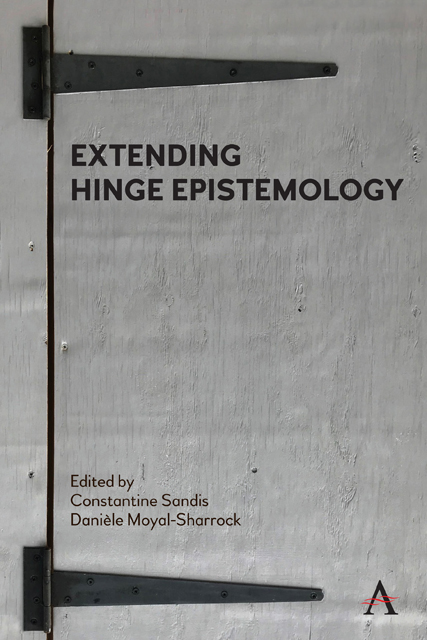Chapter Eleven - Consider the Squirrel: Hume as Hinge Epistemologist
Published online by Cambridge University Press: 09 December 2022
Summary
Hume overcame his scepticism by cheerfulness and common sense. Wittgenstein is more profoundly troubled.
Iris Murdoch, Metaphysics as a Guide to Morals, p. 272.Prologue
From the very beginning of hinge epistemology, its advocates have noted certain similarities between Wittgenstein's thought and that of Hume. They have also, however, accused Hume of ultimately remaining too sceptical and too metaphysical to be enlisted to the cause (see, for example, Moyal-Sharrock 2017:153). I have defended Hume against the second charge elsewhere (Sandis 2019). Here, I wish to focus on his epistemology and, more particularly, his account of justification. I shall argue that Hume's account of how justification comes to an end is proto-Wittgenstein in numerous respects. It is anti-sceptical without being rationalistic; it is accompanied by an account of how explanation comes to an end that places human practices and the animal behaviour that they grow from at its centre; it is an early form of hinge epistemology. The first part of this essay is devoted to showing the Hume is a hinge epistemologist. The second half considers what kind of hinge epistemologist he is. The third and final part looks at what contemporary hinge epistemologists can learn from Hume.
Scepticism about Hume
The consensus among hinge epistemologists appears to be that Hume was the kind of sceptic that Wittgenstein was arguing against viz. one who, as Danièle Moyal-Sharrock puts it, ‘takes the mere articulation of doubt for doubt’ (Moyal-Sharrock 2016:100). Moyal-Sharrock continues:
Although Hume may be seen to have progressed from Descartes when he admits that sceptical doubt is not sustainable in ordinary life, it takes Wittgenstein to recognize that universal doubt is not sustainable at all, inside the study or out – and this, not for pragmatic but for conceptual reasons (Moyal-Sharrock 2016, :101).
In a similar vein, Annalisa Coliva maintains that while ‘[t]he affinities between Wittgenstein and Hume are clear’ (2010, 154) and Hume ‘offered the first seeds to try to escape’ scepticism, he fails to avoid a ‘skeptical outcome’ (Coliva 2020, 7; see also Coliva 2010, 187). She argues:
For Hume […] the human condition is the Humean condition of being forced by nature to follow certain forms of psychological and practical conduct that fall outside rational sanction. Rationally, however, we have to recognize that our most basic beliefs are not justified and neither are our more specific empirical beliefs based on perceptual evidence.
- Type
- Chapter
- Information
- Extending Hinge Epistemology , pp. 193 - 214Publisher: Anthem PressPrint publication year: 2022



